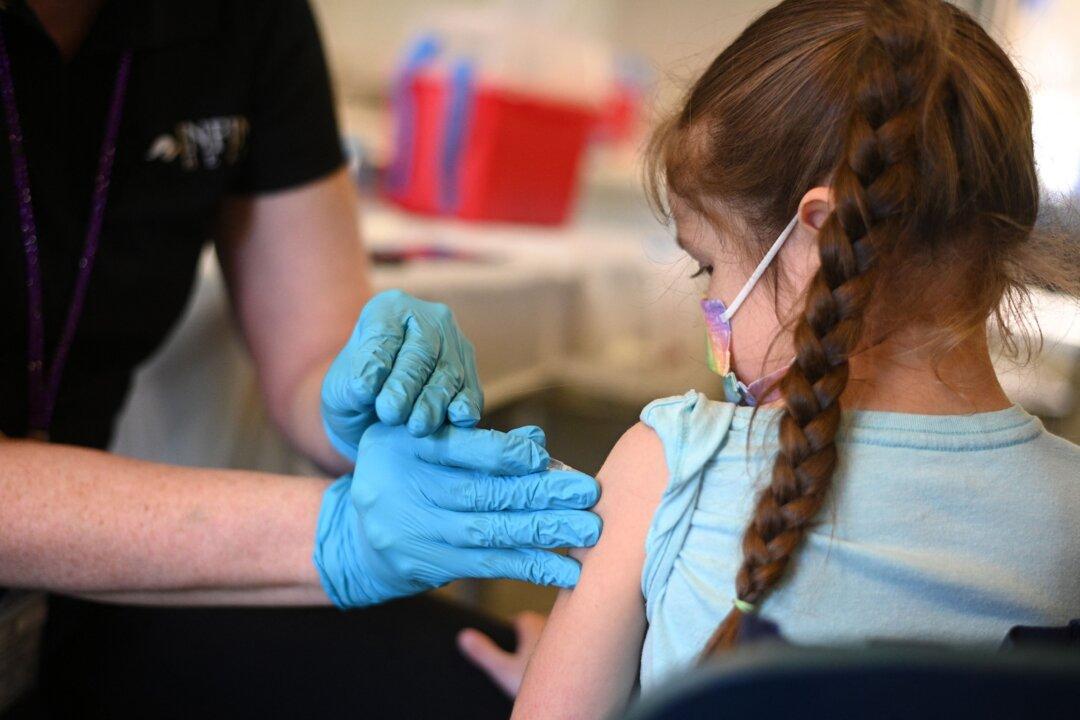The United States sent 2.2 million doses of COVID-19 vaccines to Nepal for use in the country’s vaccination program for children aged five to 11 years, according to the U.S. Embassy in Nepal.
These are in addition to the 2.26 million doses of Pfizer vaccines and 1.5 million single-dose Johnson & Johnson vaccines previously supplied to Nepal by the United States, the embassy said on June 19.





